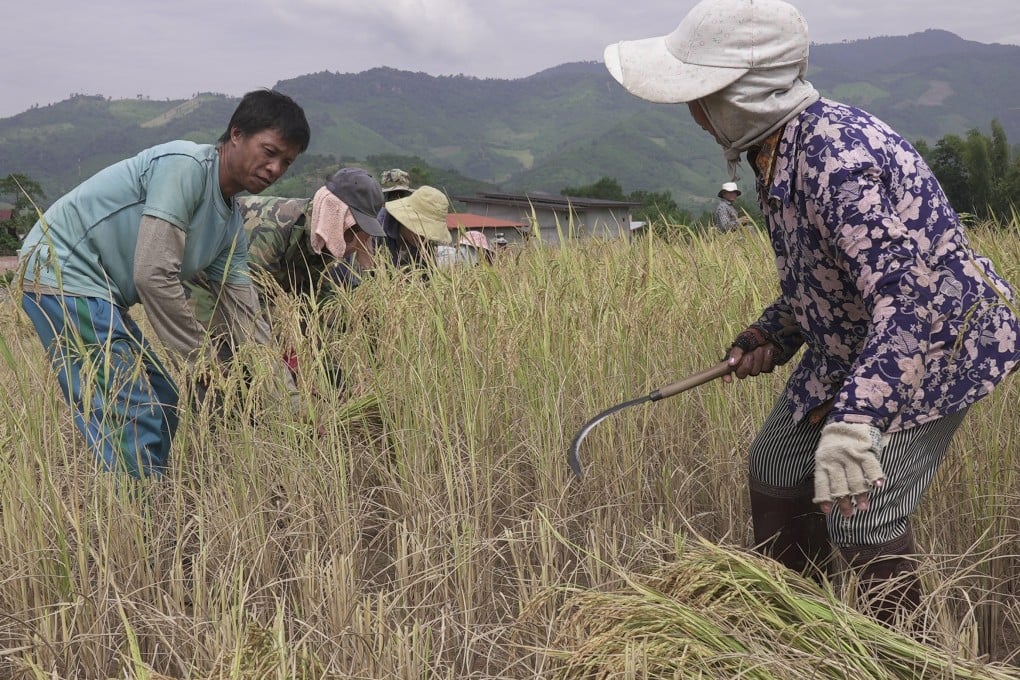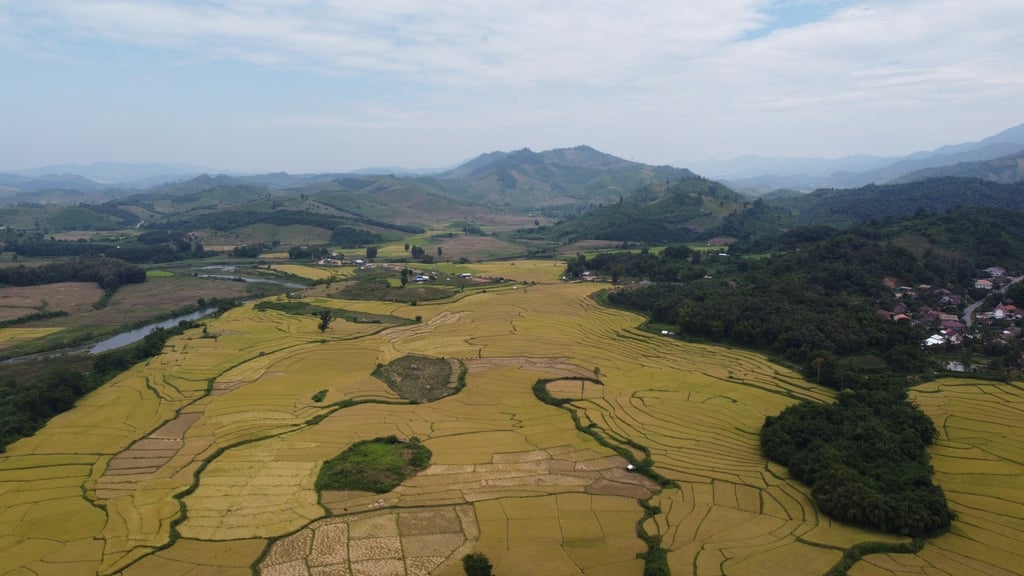Advertisement
Bananas, beef and gold: China’s appetite drives ‘Made in Laos’ brand, but at what cost?
- In 2021, Laos earned more than US$900 million from agricultural exports, with more than 80 per cent of that total going to China
- Demand is gobbling up land as Laotian farms pivot to a Chinese market. There are fears Laos’ debt crisis is leaving it exposed to unethical investments
Reading Time:3 minutes
Why you can trust SCMP
17

As soon as the rice is harvested, the corn is seeded; three months later it’s watermelons then bananas, cash crops grown year round on farms in Laos rented by Chinese investors to feed China’s insatiable appetite for fresh produce – and all done at a premium.
‘Made in Laos’ has become a banner of quality in China’s supermarkets, as part of a decade-old trend that started with bananas but is branching out into new crops – many like corn, which are unwanted in the domestic market but grow fast in Laos’ climate.
The highest grades of bananas in Oudomxay province in northern Laos go for 150 yuan (US$21) per stalk in China. Watermelons sold in pairs fetch twice that amount, farmers say, while corn – in a country that does not eat it – smothers hillsides ready to be tinned or processed for animal feed.
Advertisement
Demand from across the border has changed the incomes of countless Laotian farmers who used to get by on just two or three yearly rice harvests, with months of downtime in between, in what is one of Asia’s poorest nations.

Now, the day rate for farm labour is around US$5-7 in many areas, an increase of about a dollar according to local farmers. But most importantly, the work is year round, rather than seasonal.
Advertisement
Advertisement
Select Voice
Select Speed
1.00x